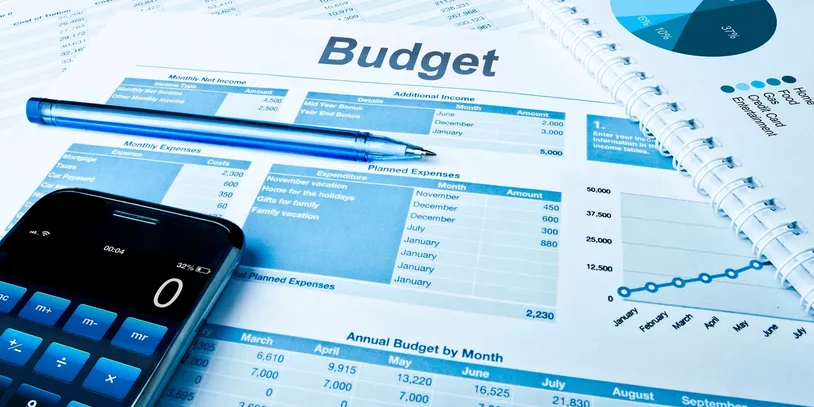Understand your current financial situation
The first step to better money management is to have a clear understanding of your current financial situation. This involves identifying your income, expenses, debts, and assets. First, keep track of all your sources of income, such as your salary, investments, or part-time job. Next, make a list of your monthly expenses, such as rent, utilities, groceries, transportation, and entertainment. Don’t forget to factor in any outstanding debts, such as credit card debt or loans. Finally, review your assets, including savings, investments, and real estate. By assessing your financial situation, you will gain insight into your situation and be able to develop a plan to improve it.
Set clear financial goals
Setting clear financial goals is essential for better money management. These goals can be short-term, such as building an emergency fund, or long-term, such as buying a home or retiring comfortably. Break big goals down into smaller, actionable steps. For example, if you want to save money for a down payment on a house, determine how much you need to save each month to reach that goal within a certain time frame. Setting short-term and long-term goals can give you a sense of purpose and motivation, making it easier to stay on track financially.
Create a Realistic Budget
A realistic budget is a powerful tool for managing your money effectively. Start by categorizing your income and expenses. Your income is the money you earn each month. Your expenses are made up of fixed costs (such as rent or mortgage, utilities) and variable costs (such as groceries, entertainment, or eating out). Then, divide your income into essential expenses, such as bills and savings, before spending money on non-essentials. Review your budget regularly to make sure you’re staying within your budget and on track to reach your financial goals. A budget can help you avoid overspending and ensure you’re using your money wisely.
Prioritize Savings and Build an Emergency Fund
Saving is an important part of managing your money effectively. One of the first savings goals you should prioritize is building an emergency fund. This fund can serve as a safety net for unexpected expenses, such as medical bills, car repairs, or job loss. Make sure you have at least three to six months’ worth of living expenses in an accessible savings account. Once you have an emergency fund, you can focus on other savings goals, such as saving for retirement, a vacation, or buying a home. By prioritizing savings, you ensure that you are financially prepared for life’s uncertainties.
Pay off high-interest debt
Debt, especially high-interest debt like credit card debt, can be a major obstacle to better money management. The interest on this type of debt can quickly add up, making it harder to achieve your financial goals. To manage your money effectively, you need to pay off high-interest debt as quickly as possible. Consider using the debt avalanche method, where you pay off the highest-interest debt first while making minimum payments on the other debts. You can also choose to use the debt snowball method, where you pay off smaller debts first to gain momentum. Once you’ve paid off your high-interest debts, you can use the money to save or invest.
Automate your savings and bill payments
Financial automation is a great way to keep your money management on track. Set up automatic transfers to your savings account so you can continue saving without interruption. Additionally, automate recurring payments like rent, utilities, and insurance to avoid late payments and missed payments. Automation helps you prioritize your savings and make sure you pay on time. This helps you maintain a good credit score and avoid unnecessary stress.
Monitor your spending and cut down on unnecessary expenses
Keeping track of your spending is essential to better managing your money. Review your spending regularly to see where you can cut back. For example, you may be spending more than you thought on dining out or on subscriptions you no longer use. Look for opportunities to reduce discretionary spending and put the money you save toward savings or paying off debt. Small changes, like cooking at home, canceling unused subscriptions,
Look for errors and dispute any incorrect information. A good credit score can give you more financial flexibility and save you money in the long run, so it’s an important aspect of better money management.
Investing for the future Investing is an important part of long-term money management. While saving is important, investing can help your money grow faster. Consider investing in assets such as stocks, bonds, mutual funds, or real estate to build wealth over time. If you’re new to investing, familiarize yourself with the different investment options and strategies. You can also talk to a financial advisor for personalized advice. Keep in mind that investing involves risk. That’s why it’s important to diversify your portfolio and tailor your investments to your risk tolerance and financial goals.
Review and adjust your financial plan regularly
Personal finances are dynamic and your financial situation can change over time. Regularly reviewing and adjusting your financial plan will help ensure that you’re on track to achieving your goals. Evaluate your budget, savings plan, and investment strategy at least once a year or whenever a major life change occurs, such as a job change, a move, or a major purchase. Making adjustments as needed can help you stay flexible and ensure that your money management strategy contributes to your long-term financial success.
Conclusion
Getting better with money is a process that requires careful planning, discipline, and consistency. By understanding your current financial situation, setting clear goals, creating a realistic budget, and prioritizing savings, you can set yourself up for financial success. Paying off high-interest debt, automating your savings account, and cutting out unnecessary expenses can further improve your financial situation. Investing for the future and maintaining a good credit score provide additional opportunities to build wealth. Regularly evaluating and adjusting your financial plan can help you stay on track. By following these step-by-step personal finance tips, you can take control of your money and work toward a secure financial future.


